Ambassador Dennis Ross Testimony East- Rethinking the Road Map
advertisement
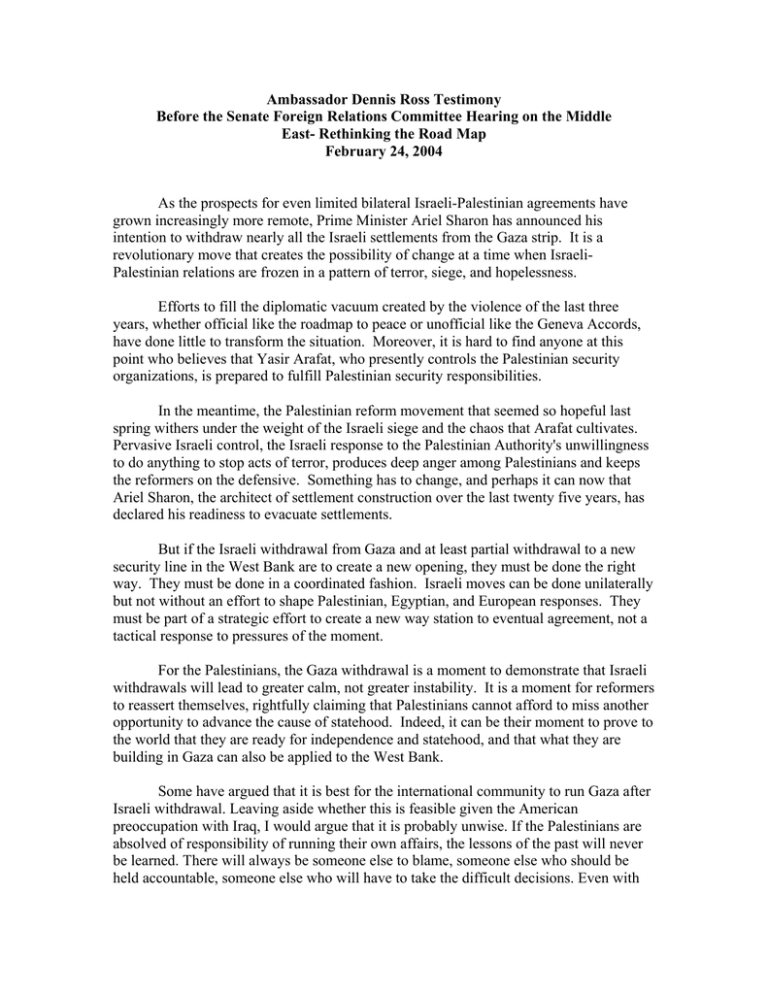
Ambassador Dennis Ross Testimony Before the Senate Foreign Relations Committee Hearing on the Middle East- Rethinking the Road Map February 24, 2004 As the prospects for even limited bilateral Israeli-Palestinian agreements have grown increasingly more remote, Prime Minister Ariel Sharon has announced his intention to withdraw nearly all the Israeli settlements from the Gaza strip. It is a revolutionary move that creates the possibility of change at a time when IsraeliPalestinian relations are frozen in a pattern of terror, siege, and hopelessness. Efforts to fill the diplomatic vacuum created by the violence of the last three years, whether official like the roadmap to peace or unofficial like the Geneva Accords, have done little to transform the situation. Moreover, it is hard to find anyone at this point who believes that Yasir Arafat, who presently controls the Palestinian security organizations, is prepared to fulfill Palestinian security responsibilities. In the meantime, the Palestinian reform movement that seemed so hopeful last spring withers under the weight of the Israeli siege and the chaos that Arafat cultivates. Pervasive Israeli control, the Israeli response to the Palestinian Authority's unwillingness to do anything to stop acts of terror, produces deep anger among Palestinians and keeps the reformers on the defensive. Something has to change, and perhaps it can now that Ariel Sharon, the architect of settlement construction over the last twenty five years, has declared his readiness to evacuate settlements. But if the Israeli withdrawal from Gaza and at least partial withdrawal to a new security line in the West Bank are to create a new opening, they must be done the right way. They must be done in a coordinated fashion. Israeli moves can be done unilaterally but not without an effort to shape Palestinian, Egyptian, and European responses. They must be part of a strategic effort to create a new way station to eventual agreement, not a tactical response to pressures of the moment. For the Palestinians, the Gaza withdrawal is a moment to demonstrate that Israeli withdrawals will lead to greater calm, not greater instability. It is a moment for reformers to reassert themselves, rightfully claiming that Palestinians cannot afford to miss another opportunity to advance the cause of statehood. Indeed, it can be their moment to prove to the world that they are ready for independence and statehood, and that what they are building in Gaza can also be applied to the West Bank. Some have argued that it is best for the international community to run Gaza after Israeli withdrawal. Leaving aside whether this is feasible given the American preoccupation with Iraq, I would argue that it is probably unwise. If the Palestinians are absolved of responsibility of running their own affairs, the lessons of the past will never be learned. There will always be someone else to blame, someone else who should be held accountable, someone else who will have to take the difficult decisions. Even with all the internal difficulties that Palestinian security services face today, they know better than any multinational force how to combat Hamas. True, they are likely to need help in carrying out their mission and that should be forthcoming from the outside. But the essential point is that Palestinians must be in the lead in taking on this responsibility. Will Yasir Arafat seek to block the Palestinian Authority from confronting Hamas, Islamic Jihad and the al Aqsa Martyrs' Brigade after an Israeli withdrawal if it means that Palestinians demonstrate to the world that they are not ready for statehood? Can he succeed in doing so in such circumstances? If nothing else, now is a time to be making clear to Palestinians what is at stake and what can be gained but also what is expected of them after withdrawal. Palestinians may fear that Gaza First is Gaza Last, but the combination of having set the precedent of evacuating settlements and completing the security barrier in the West Bank will inevitably produce at least a partial pull-back there as well. The issue is not whether there will be a partial withdrawal in the West Bank. Rather, it is whether the security barrier, while not being a border, may remain the new separation line for a long time to come. Once again, it will be up to the Palestinians choose. If Israelis in both Gaza and the West Bank are getting out of Palestinian lives and Palestinians are assuming their security responsibilities, peace making will be resumed and a permanent border can be negotiated relatively soon. If the Palestinians are not prepared to assume their responsibilities, then the Palestinians may be looking at a reality that will remain unchanged for the foreseeable future with little prospect of Palestinian statehood any time soon. Egypt should see that it too can help in this situation. An Israeli pull-out from Gaza creates a challenge and an opportunity for the Egyptians. A challenge because Egypt cannot be happy about the prospect of a Hamas dominated entity on its border. An opportunity because the Egyptians can help the Palestinians show the world they are ready for statehood - - and bordering Gaza they are in a strong position to assist in their doing so. They can certainly do much more to prevent smuggling of potentially dangerous weaponry into Gaza, assist Palestinian security forces, and publicly declare that continued terror by Hamas and Islamic Jihad will threaten the Palestinian cause. Egypt's stature in the Arab world and its own policy of peace with Israel certainly would be vindicated by showing that the Palestinians can succeed. No one is better positioned than President Mubarak to tell Yasir Arafat that he will be held accountable if he now tries to impede this opportunity. For the Europeans, too, who have often been vocal critics of the Israelis, Israeli evacuation of settlements and withdrawal from Gaza can only be welcomed. They must not sit on the sidelines. They have credibility with the Palestinians and it should be clear what European expectations are. They can provide material help both on security and economically, provided the Palestinians are prepared to do their part. In particular, the Europeans should join the US and others in spearheading a broad construction effort with strict financial oversight. They should target assistance and investment to create a successful counterweight to Hamas's social welfare Dawa network. If there is a targeted infusion of funds and Palestinians see their lives improve, it is the people and not Hamas ideology that will gain. Who can pull this coordinated effort together? Only the United States can do so. If Israeli withdrawal from Gaza is to create a way-station to eventual peace, the US must fashion a strategy of "coordinated unilateralism" and marshal support from an array of parties in the Middle East and beyond to make it happen. One lesson is clear from the past: initiatives in the Middle East are never self-implementing. The Israeli impulse to withdraw from Gaza requires a major effort from the US to shape it, legislate it, and produce international support for carrying it out.

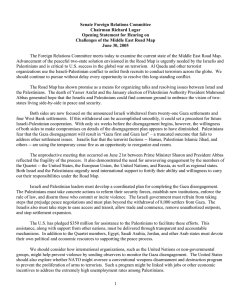
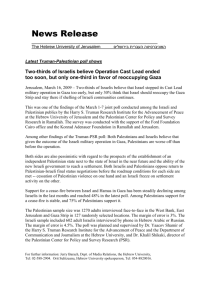
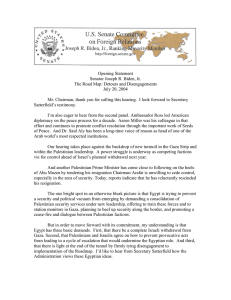
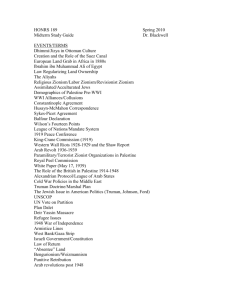
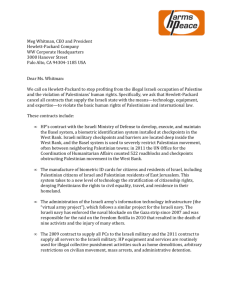


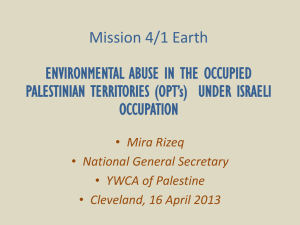
![[36]](http://s2.studylib.net/store/data/015414026_1-691090cee068c19069d30775571f9322-300x300.png)